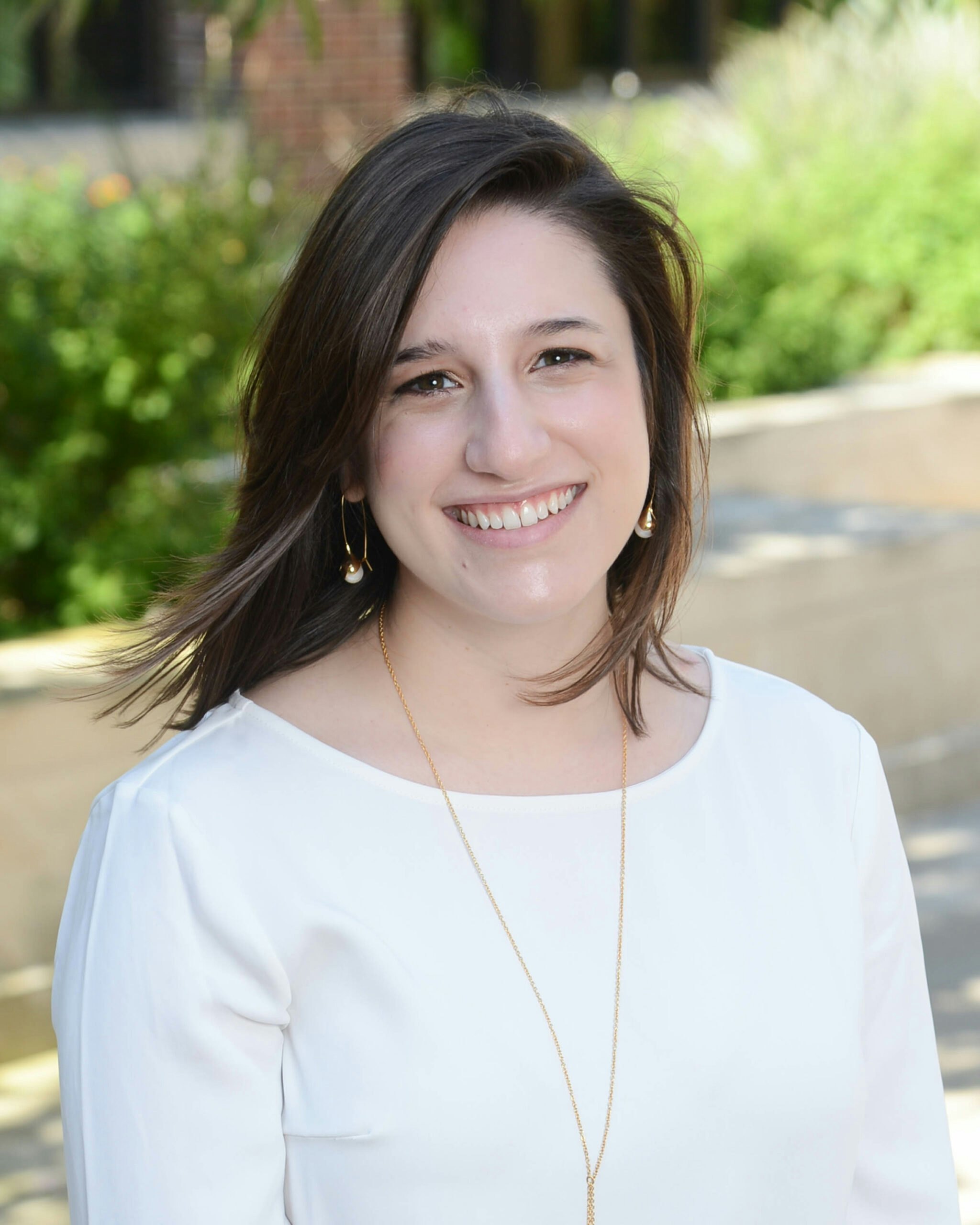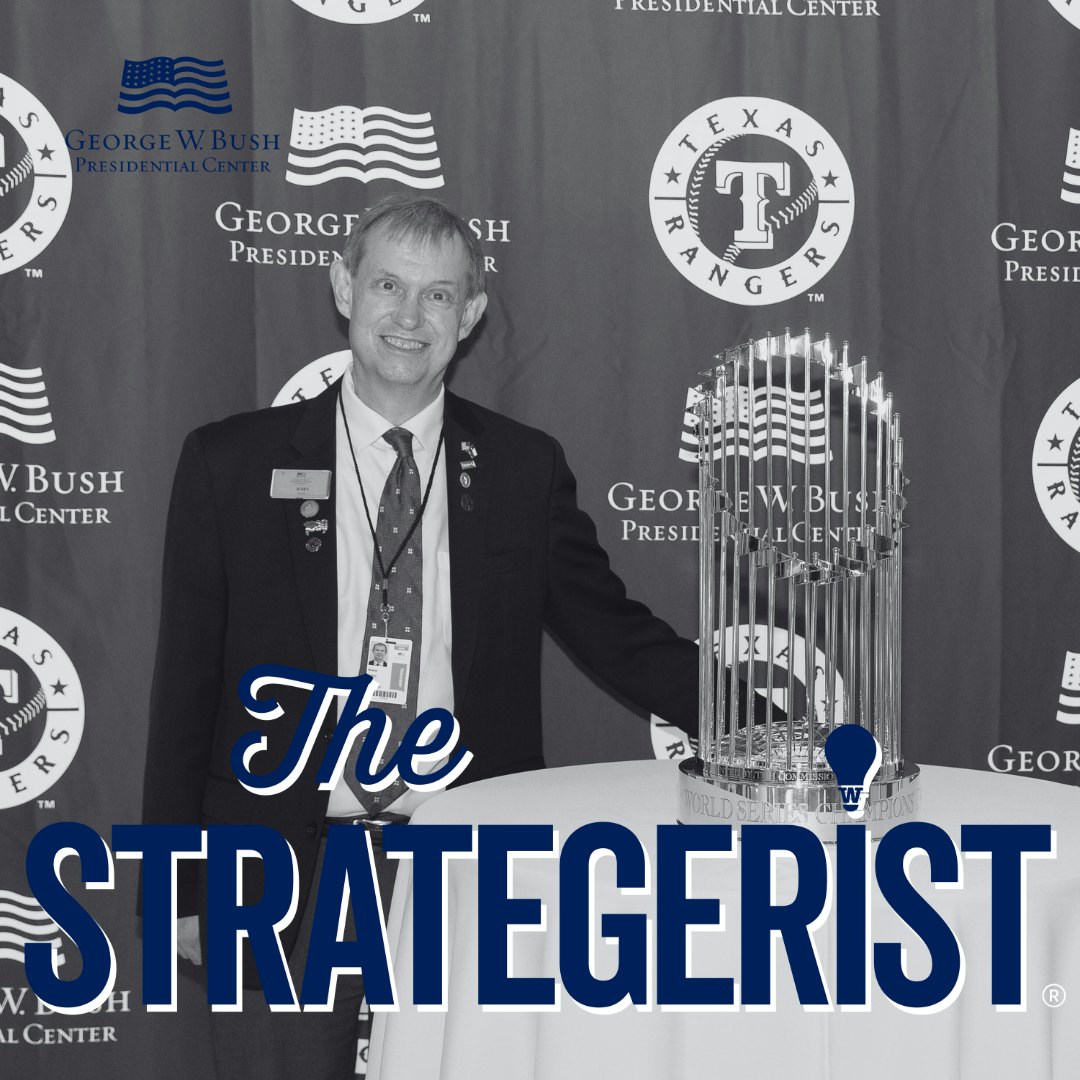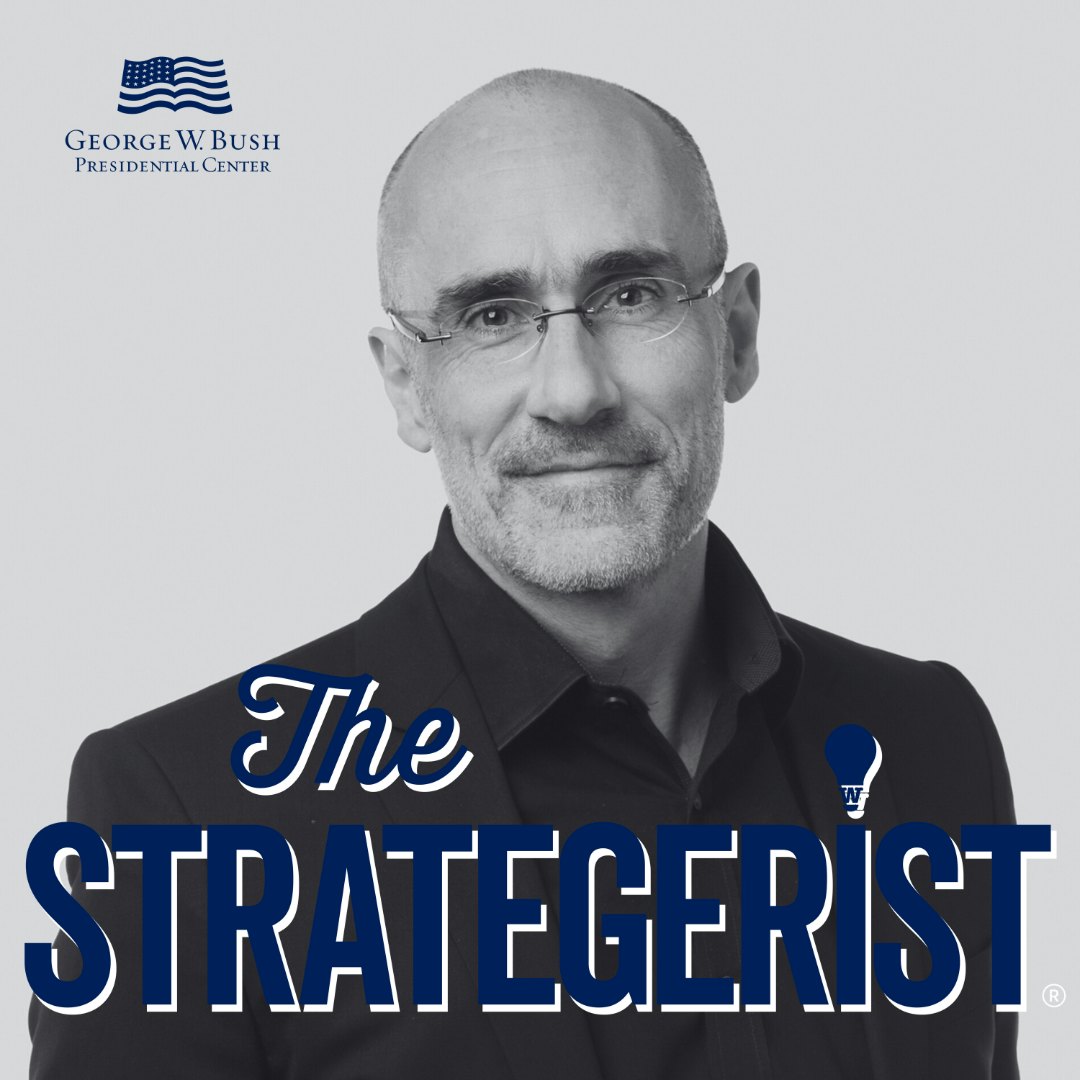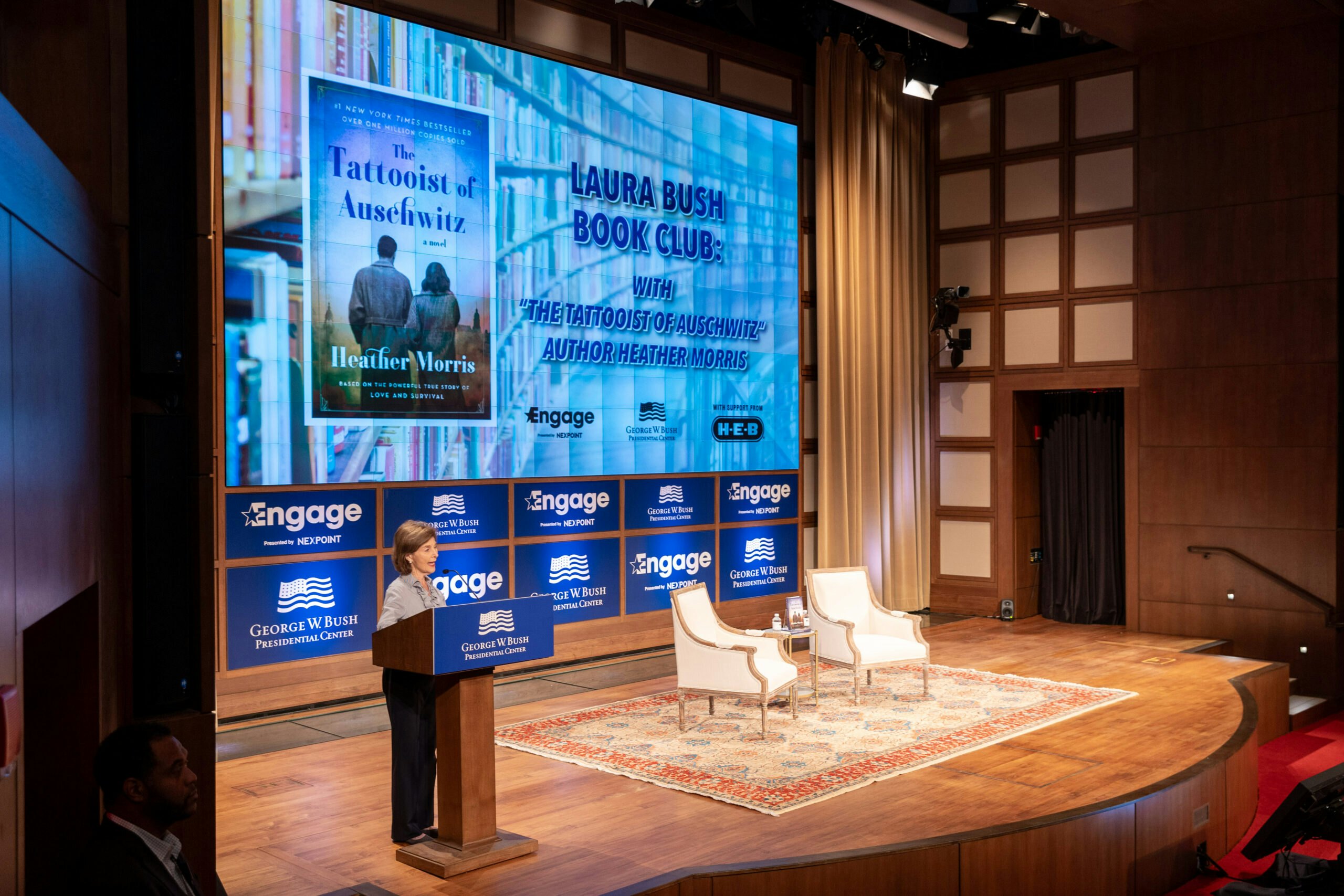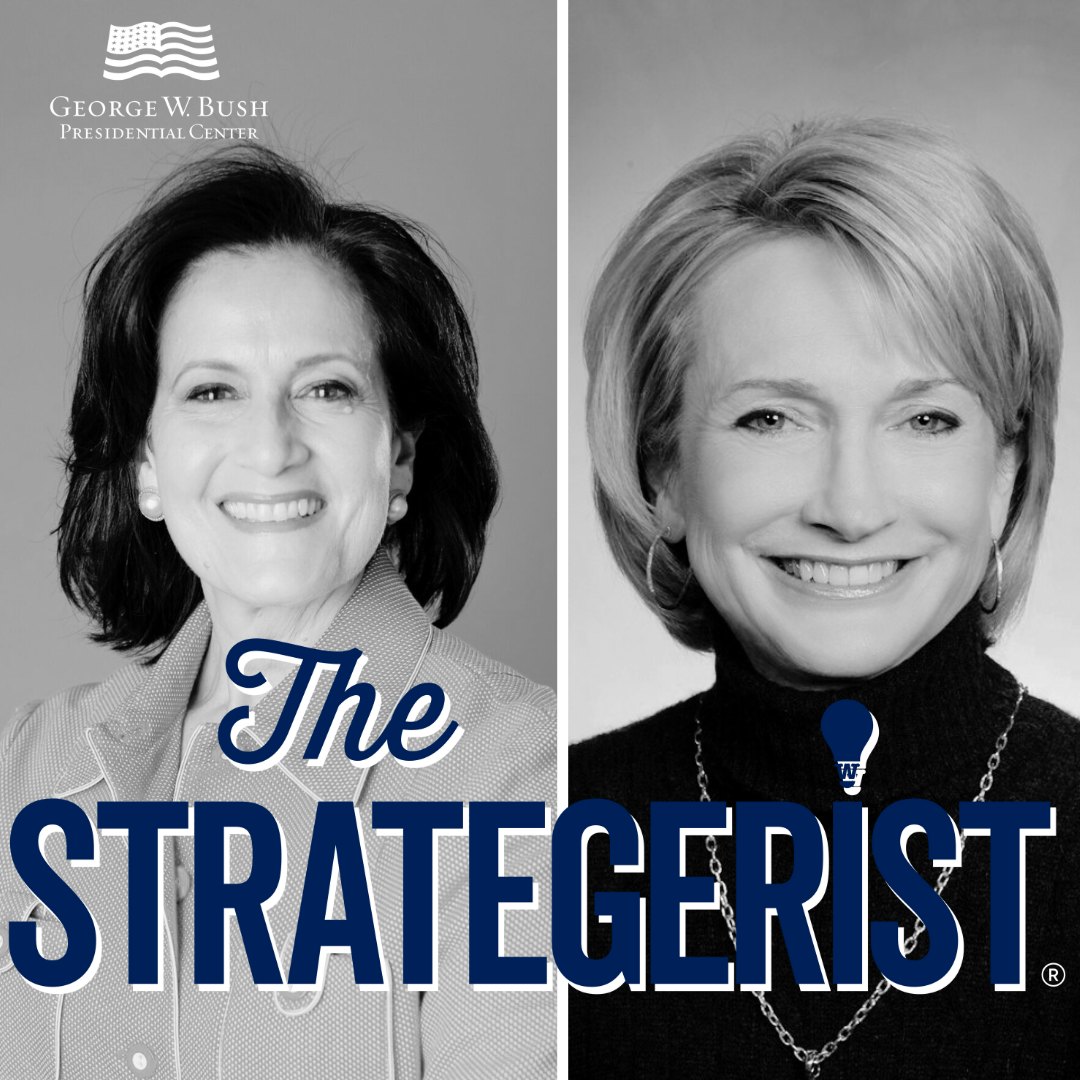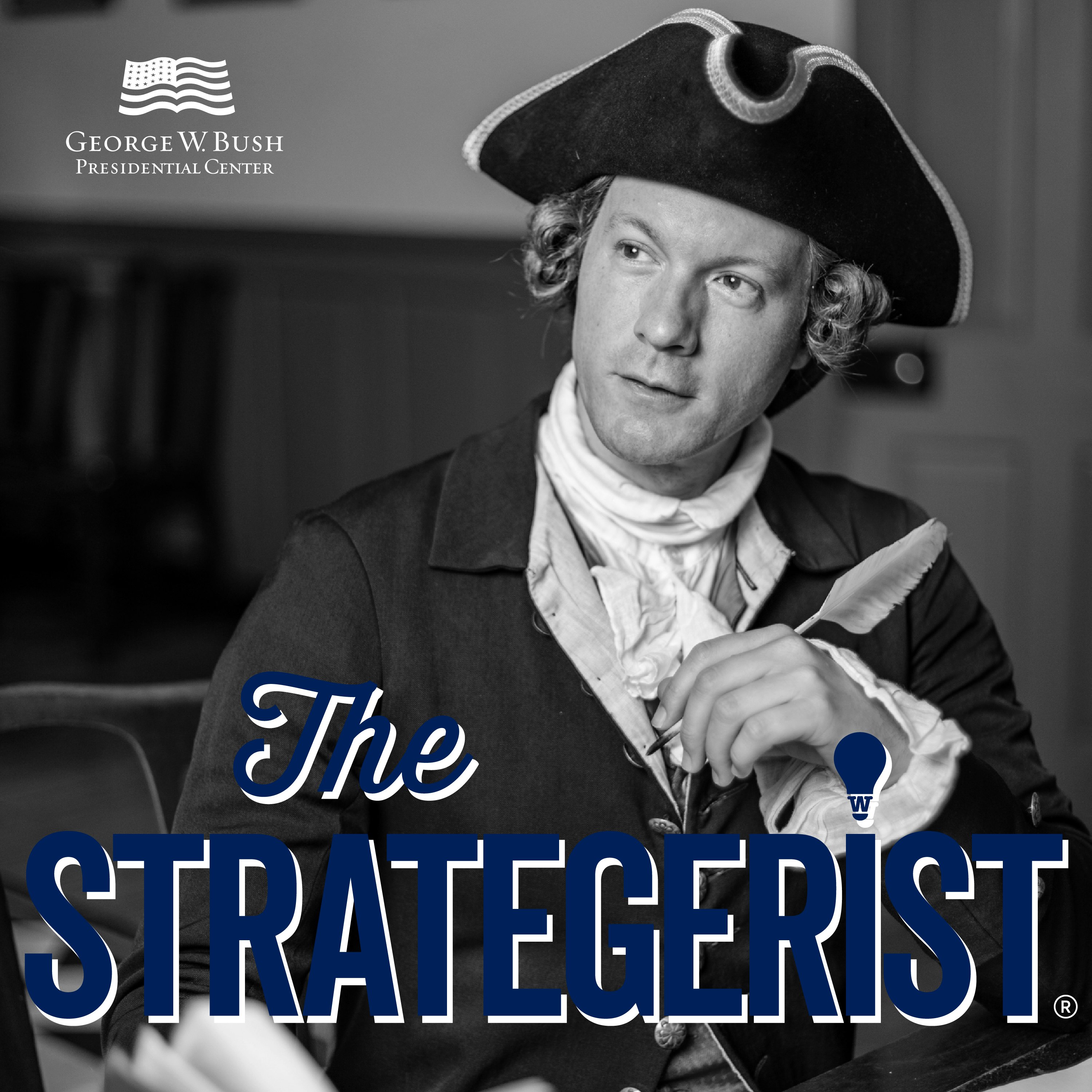Cokie Roberts chats about the transformation of D.C. and journalism — for the better and worse — and how she ended up in Tanzania interviewing First Ladies Bush and Obama.
We sat down with award-winning journalist Cokie Roberts to chat about the transformation of Washington and journalism – for the better and for the worse. We also cover what studying the early women of American history can teach us, and how she ended up in Tanzania interviewing First Ladies Laura Bush and Michelle Obama on very little notice.
Related Content
-
- Watch the Investing in Women: Strengthening Africa summit from 2013, featuring a conversation with Cokie Roberts, Mrs. Laura Bush, and Mrs. Michelle Obama
-
- Learn how the George W. Bush Institute is investing in women and girls
-
- Watch Remembering Barbara Bush, including a conversation with Barbara Bush’s grandchildren moderated by Cokie Roberts
Read the episode transcript
Transcript
01:10 AK: Well, I am excited and thrilled to welcome a living legend to The Strategerist, an actual living legend as defined by the Library of Congress. Now this is not my words, it’s the Library of Congress that’s defined her as that. And she’s NPR and ABC News commentator, Cokie Roberts. Cokie, thank you so much for joining us.
01:26 CR: What a treat to be with you.
01:27 AK: And we also have Bill McKenzie, the editorial director of the George W. Bush Institute joining us.
01:31 Bill McKenzie: Thank you. Glad to be here.
01:33 AK: Cokie, you’ve been inducted into the Broadcasting and Cable Hall of Fame, you’ve won countless awards, including three Emmys, and you’ve been cited by American Women in Radio and Television as one of the 50 greatest women in the history of broadcasting.
01:45 CR: The cool thing about that was that Lucille Ball was one of the others, so that was neat.
01:49 AK: That’s some great company. I think I’d put you above her, as far as interviewing skills, but I haven’t seen too many of her shows.
01:54 CR: Well, you don’t know. We’ve never heard her interview anybody, so how could we know?
01:58 AK: We’re missing out.
[laughter]
02:00 AK: So you’ve seen the landscape of journalism change during your career?
02:01 CR: Uh-huh.
02:02 AK: How has it changed for women specifically?
02:05 CR: Well, it’s much better for women. When I was coming into the business in the dark ages, it was very, very difficult. People said out loud, “We don’t hire women to do that,” even after that became illegal, and they often said it with their hands on your knee. So it was not an easy time at all. But then, now you do see at the entry level many more women than men, and that’s something of a reflection of women coming out of journalism schools, women coming out of history and political science programs. But then, as you move up, it still is tougher, and you see it not only in anchor positions, but you see it in senior and executive producer positions, and you certainly see it at the top of the heap, the big bosses. And much more important, the most important, you see it in the boards of directors, and that’s where the decisions ultimately get made, and that’s still a very bleak picture. Frankly, I don’t know where they find all these old white men. There are… The percentage in the population is tiny, but you’d never know that to look at corporate boards of directors.
03:23 AK: What kind of obstacles remain for women in getting more of those positions in the boards of directors and at the higher level?
03:29 CR: Well, people don’t like to give up power, it’s not complicated. So people who have the power wanna keep the power and don’t wanna share it.
03:39 BM: As you have progressed in your career, how have you seen women in radio change, and women in television?
03:48 CR: Well, there’s radio and radio, and at NPR, where I’ve spent most of my radio career, I had a brief stint at CBS, women have done quite well because NPR started after women were legally required to be treated equally. So that is a big difference, because if you’re starting from scratch, you don’t have to kill somebody to put a woman in his job and so that makes things easier. But it was also true, quite frankly, that NPR paid badly and women would take lesser salaries, and so that also made a big difference. And then in television, I’ve worked in both commercial and public television, I’ve never really seen any difference of the way women are treated between those two. And again, you do now see women in anchor positions, occasionally, not that often, but occasionally, and you’ve occasionally seen women as heads of news divisions and that kind of thing. So it’s definitely… It’s night and day difference from when I started, but there’s, as with everything, a ways to go.
05:06 BM: And what about young women coming into profession? Are you seeing more or are you seeing…
05:10 CR: Yeah, there are all types of them. They’re all over the place, and they’re great, they’re go-getters, they’re busy, they are great at getting stories, they’re brave. Just today, an advisory went out about covering Make America Great Again events, which is dangerous for journalists and quite dangerous, and particularly dangerous for young female journalists. And so they have to be willing to do this, and they are.
05:42 AK: You came up in the ’60s, which was also a tumultuous time. How does the environment today compare to that of the ’60s?
05:50 CR: Well, it’s different in terms of the vitriol. In the ’60s, what we had was policy fights over civil rights and Vietnam, and yes, they could get horrible. The ’68 Convention was one of the least pleasant places you’d ever wanna be. But it was not the world of social media, and that’s made all the difference. And so you didn’t have people anonymously going after you or issuing death threats, and also, it was not so personal. Today, it’s all personal from the President on down. It’s not about policy. It’s not the people are really disagreeing about immigration or something, it’s that they are in camps and they’re disagreeing with the other camp, and not just disagreeing with it, feeling that it’s evil and should be eradicated, and that anybody who represents that camp or is perceived to represent that camp is evil and should be denounced. And that is a very big difference from any time in our American history.
06:58 AK: How do we get past that?
07:00 CR: I don’t know, I don’t know. I think that we’re here today, as it turns out, to be remembering Barbara Bush and the soul of civility and President George H. W. Bush, one of the most decent human beings that ever walked the face of the earth. And how we got from them to this? It’s really a very sad story, and I think we just have to have people decide enough and throw their hands up and say, “We’re not gonna do it anymore.”
07:36 AK: You grew up with a prominent mother and father, and they were in Congress as you were starting your journalism career. How did you…
07:45 CR: Well, my father was in Congress from my birth. He was in Congress my whole life, and then my mother went to Congress when I was in my 20s.
07:57 AK: How did you end up on the opposite side of the aisle from them, so to speak?
[laughter]
08:01 CR: Well, they actually met on the college newspaper, so they had had their stint, and my father had worked for the New Orleans newspaper on the side while he was in law school. So they weren’t ignorant of this line of work. They weren’t always thrilled with it, but I’m not always thrilled with the press either. But my husband, who I met when I was 18, he was always gonna be a journalist. It was something he wanted to do from his babyhood, and it would have been a little rough on him if I had gone into politics. [chuckle]
08:40 BM: And did you know from babyhood, I think the way you put it, that you wanted to go into journalism, or did you think…
08:44 CR: No, not at all. No, it was… I’m a woman of a certain age. Our lives were not lives that were planned out. We wanted to get married and have families, and maybe do something good, but there was not really a sense of career.
09:03 BM: So having seen the political side of this discussion, did that ever entice you?
09:07 CR: To what?
09:07 BM: To be in politics?
09:08 CR: Oh, if I hadn’t married my husband, which is an odd thing to say, because we’re married for 52 years, but if I hadn’t married him, I probably would have gone into politics somewhere along the line.
09:19 BM: Alright. So what was that like covering Washington, Congress, etcetera, when, particularly, your mother was in there?
09:26 CR: Well, actually it was a big benefit to me to have grown up knowing the institutions of Washington so well. I had a leg up and people trusted me because they knew that I fundamentally respected the institutions, and that I didn’t think that politicians were evil people. And so it was really an advantage to be able to have had that kind of background before I started covering Congress and politics regularly. But it’s also true that politicians, when it comes to being interviewed by people whose broadcast will get out to the world, are the most modern of men because they don’t much care who you are or what you are; they just care about getting themselves out to the public.
10:26 BM: So you are a child of Washington, in effect?
10:29 CR: Washington and Louisiana.
10:30 BM: Right. But you grew up in a Washington that’s a little bit different from today. How do you characterize Washington versus the time you were growing up?
10:41 CR: Well, it’s a much less friendly place, certainly, when I was growing up. I just finished writing a book review of a biography of Betty Ford, and Betty and Jerry Ford and my parents were very good friends, and Jerry Ford was the minority leader of the House when my father was the majority leader of the House. And that’s a Washington you just don’t see at all today. And some of it has to do with the fact that families aren’t there, so that they don’t have the kind of camaraderie that they used to have. Some of it is, some of this lack of stability. My mother always said, actually, that when they first got to Washington, they were 24 and 26 when my father was elected, and that President Bush’s father, Prescott Bush, was very, very kind to them, just reached out to them and tried to be gracious to them. And he didn’t have any connection to them, he was just a nice man. And that’s the way it was then, and people didn’t much care what party you were from. Now, that doesn’t mean they didn’t have partisan battles. Of course, they did. But it was over policy, it wasn’t personal.
12:00 AK: You’re a New York Times bestselling author, and that’s written extensively on First Ladies. How did you get into First Ladies? What piqued your interest about them?
12:08 CR: Well, it’s not just First Ladies, it’s women who… Influential women in American history. So they’re in a variety of walks of life, some of them are First Ladies. But my first big history book was Founding Mothers, about women of the founding period. And I really got into that because I spend so much time with the founding fathers. I know them all on a first name basis. And that’s what you should do if you cover Congress and politics as extensively as I have, because people are invoking them all the time, usually erroneously, but you need to go back and read what they actually did say about religion in the public square or the right to bear arms or why a president has to be born in America, whatever it is, it’s constantly coming up. And so reading their works and their debates and their biographies, I started to get very curious about what the women of the time were up to, because I knew from my own childhood how influential the women of the 1950s and ’60s were.
13:23 CR: And I covered women, I covered women in politics, both as politicians and as voters. And I just didn’t know anything about the women of this crucial period in our history except for Martha Washington at Valley Forge and Dolley Madison saving the portrait. And so I went back to learn about them, and discovered that was almost impossible to do, with a couple of good biographies of Abigail Adams as an exception. That’s changed, I’m happy to say, since then. That was 2004 when that book came out, and there have been some decent biographies, quite good biographies, since then. But at that point, there weren’t. And so in order to learn about these women, I had to actually do the research myself, and that got me into it.
14:14 AK: What did you find about them that was surprising to you?
14:17 CR: I think the surprise to me about the founding period was how deeply political they were, and how everybody just accepted that they were political and that that was normal. And even though they had no rights, no legal rights, they couldn’t own property, if they were married, they were property if they were married, and they had no political rights, certainly, they still were highly, highly influential and were willing to make their views known, not just to their husbands and brothers, but to the wider world. And that did surprise me.
14:57 AK: In 2013, speaking of First Ladies, you spent some time with Mrs. Bush and Mrs. Obama in Africa. Tell us about that trip.
15:04 CR: That was fabulous. So what happened was… This speaks to the great graciousness of Laura Bush. President George W. Bush and Laura were going to be in Africa, of course, you know they’ve done a tremendous amount of work in Africa, and they had convened a First Ladies of Africa Summit. And then they discovered, quite by accident, that the Obamas were gonna be on the continent at the same time. And so it was the obvious thing to do, to invite Mrs. Obama to attend, and she could have hijacked the whole thing. She could have come in and given the keynote speech as the First Lady of the land of African descent, and it would have become her summit. And speaking to her graciousness, she chose not to do that and said she would be delighted to come if it could be a conversation with Mrs. Bush.
16:09 CR: So then it was a lot of toing and froing about who was going to conduct this conversation. And I’m at the beach and I get this phone call sent from here, from Bush Center, saying, “Can you be in Tanzania next week?” [laughter] And I said, “No. What are you talking about? Tanzania?” And then I went and told my husband, and he said, “Why can’t you be in Tanzania next week? Why not? Sounds great.” And then I convinced ABC that I needed to be in Tanzania next week, and so, off I went. And it was a wonderful conversation. It was so important to the First Ladies of Africa because succession, too often in Africa, can mean death, and certainly not a peaceful transition.
16:58 CR: And to have these two women of different political parties talking to each other in such a friendly and substantive way, I think, was a tremendous example. And at one point, I said in the course of the interview, I said to Mrs. Obama, “You wanted this to be a conversation instead of a speech. Why? Why did you do that?” And she reached out to Laura Bush and said, “Because I love this woman,” and she said, “She’s been such an incredible help to me, and I’ve learned so much from her.” And you can see it now when the two families are together, there’s just a tremendous rapport, and that was a great message to America, but also to the women of Africa. And they re-convened the next year in Washington. And so I was able to do it again, and it was just great.
17:54 AK: A shorter trip that time.
17:55 CR: A shorter trip, much shorter trip, just to the Kennedy Center, but… And then they recently, within the last year or so… I wasn’t the interviewer in this case, but I introduced them. They did a program together at the National Archives about servicemen, and my colleague, Bob Woodruff, who of course was injured in Iraq, interviewed them. And so they’re a good act together, they do a great job.
18:25 AK: They are. Mrs. Obama was even here just a couple of months ago. She was in Dallas for another event and came up and spent some time with the staff and…
18:33 CR: That’s great.
18:34 AK: Took some questions from us, and just really had… She was incredibly gracious with her time.
18:37 CR: Yeah, she is, and she’s totally real. There’s nothing fake about her. But again, at McCain’s funeral, when President Bush sort of slipped her a candy, that became a national story. That’s how weird we’ve become, that you can’t just give your colleague next to you a piece of candy without people thinking, “Aha. There’s something going on.”
[laughter]
19:03 AK: He slipped her a cough drop and it’s a story, because I think we’re hungry for these warm stories, though. I think…
19:09 CR: Well, that’s true. In fact, when I did this interview in Africa, I started it by saying, “Martha Washington,” ’cause the role of the First Lady is a very difficult role, and Martha Washington had written early in her ascension to this unique position, and of course, the first. She said, “People call me the First Lady or the Highest Lady or something, in the land. I think I’m the chief state prisoner.” And so I said to them, “So do you have some sympathy for that? You’re the chief state prisoner?” And they both laughed and said, “Why, yeah, it has some prison aspects, but it’s a nice prison and it’s got a good chef and all of that.” And one of the conservative outlets wrote, “Michelle Obama complained she’s in prison.” You just can’t get free from this foolishness.
20:02 AK: Yeah, the partisan rhetoric is inescapable at times, but it’s still nice we have these warm stories…
20:08 CR: It is.
20:08 AK: Which I think reflects where we are.
20:10 CR: And I think the week of John McCain sort of brought that home in a big way.
20:15 AK: And Mrs. Bush, too, the lady that you’re here for, at her passing week, united again.
20:17 CR: Absolutely, absolutely. That was very clear that that was something that people could feel good about and get behind. As I say, my father was a Democratic leader in Congress, and my mother a Democratic member of Congress, but the families were always close, and my mother then became President Clinton’s ambassador to the Vatican. And at that point, Barbara Bush, the younger, was on a study abroad program in Italy and her parents came over, I think, at Thanksgiving time or something, and they all had Thanksgiving dinner together or whatever, the holiday it was. And that’s the way it should be, and that’s the way it used to be, and unfortunately, that’s not the way it is.
21:08 AK: What’s one thing… Now on totally different track, what is one thing that no one ever asks you that you wish they would?
21:16 CR: I feel like I’ve been asked pretty much everything. [laughter] At this stage…
21:19 BM: Except this one.
21:20 CR: At this stage of life, right? [laughter] I don’t know. I can’t… I know, they should ask me how wonderful my grandchildren are.
21:32 AK: Well, how wonderful are your grandchildren?
[laughter]
21:36 CR: I have six teenage grandchildren, and I actually like teenagers. I must say, I like them better in their parents’ homes, but…
[laughter]
21:44 CR: But they are a great group and it’s a wonderful enjoyment in life.
21:49 BM: I’ll throw this one out as something a little bit more serious. So you started NPR kind of in the early days?
21:55 CR: Here in my 41 years again.
21:56 BM: Yeah, so here we are, four decades later. Did you and your cohort envision it becoming this institution it is today?
22:04 CR: No, I don’t think so. It became an institution quicker than most people realize. By the time even that I got there in 1977, it already had more listeners than Time Magazine, which was a big deal at the time, had readers. So it was making inroads around the country. But now, of course, it is the primary news source for millions of not just Americans, people around the world. And it’s one of the few mainstream media outlets that is growing, not only in listenership and podcast listening and all of that, but also in reporting. At a time when others are cutting back on bureaus, particularly abroad, we keep opening them, and I think that’s just incredibly important. We live in this global society where what happens in Syntagma Square can affect your 401k, and you’ve got to have knowledge of what’s going on, first-hand knowledge, not somebody in pajamas writing a blog. Knowledge, somebody who’s curated and edited and checked, telling you what’s going on.
23:24 AK: Well, and finally, what should we, as a country, be talking about that we’re just not talking about?
23:27 CR: I think we are talking about it. I think what we should be talking about is what we’ve been talking about here. We should be talking about a way of getting past this vitriol and poisonous atmosphere, to a place where we can disagree but understand that, fundamentally, we’re all in the same team, and that we care about this country, we care about the institutions of this country, and that they need to be preserved and protected and celebrated. And that is something that we really need to talk more and more about, and when we do talk about it, people agree and say, “Yes, that’s where I wanna be. That’s where I want the country to be.” But we’ve got to make that a much more majoritarian conversation than it is right now.
24:20 AK: Cokie, you’ve been incredibly gracious with your time, with the Bush Center, not just today, but over the years. Thank you so much for both this and all of that. That was Cokie Roberts. And you can watch the aforementioned Bush Institute African First Lady Summit, featuring Cokie and Mrs. Bush and Mrs. Obama, as well as other related content at www.bushcenter.org/cokieroberts.



